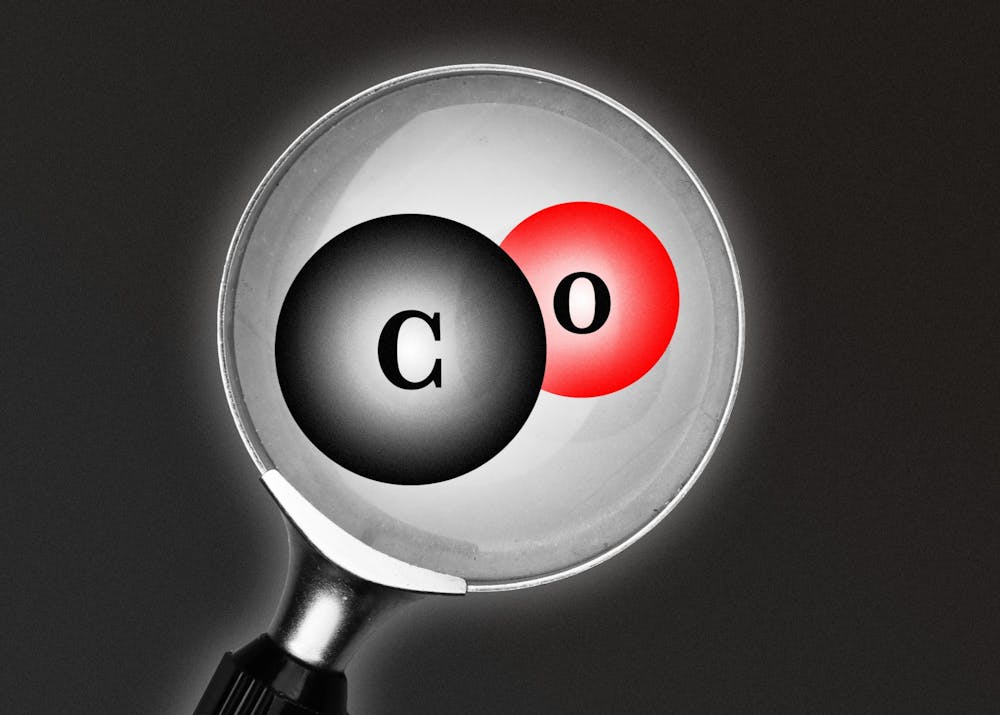More than two months ago, one Miami University student was hospitalized due to a carbon monoxide leak in Hillcrest Hall.
Now, as students settle into their dorms for the spring semester, they are greeted with a temporary solution — residential, battery-powered monitors — with bigger solutions in the works.
On Dec. 2, 2021, University Communications sent out an email updating the Miami community on the Hillcrest incident. Working with Prater Engineering, Miami administration determined back in December that “a combination of unrelated factors created a situation in which exhaust from a water heater could be pulled inside the building.”
Cody Powell, associate vice president of Facilities Planning and Operations, said his team immediately began working to fix this issue both in the moment, to get students back in their rooms as soon and as safely as possible, and in the long-term, implementing permanent solutions over winter break.
In December, Miami installed temporary detectors in Hillcrest, then installed those same monitors in every residence hall. Over J-term, Powell and his team relocated the exhaust coming from the water heaters at Hillcrest away from the building.
“It looks a little odd the way that we've had to bury the pipe and take it out into the yard, but safety is the number one objective here,” Powell said.
Michael Shock, a sophomore marketing and entrepreneurship major, owned the carbon monoxide monitor that alerted students to the leak back in November. Shock said he came into this semester with an expectation for improvements to have been made, and he’s been relieved to see physical changes.
“I was kind of assuming that the university would be making repairs and everything like that … so it's been really reassuring to see all the improvements they've made,” he said.
Though changes have been made, Shock said he’s still cautious.
“I still have [the home detector] with me,” he said. “That definitely was a big deal, so we made sure to bring brand new ones with all fresh batteries and everything like that and made sure to talk to my friends about it again as well.”
In an effort to improve safety on campus, the Associated Student Government (ASG) is planning an air quality audit for all dorms on campus.
Harper Sutton, a dietetics and psychology major and secretary for safety in ASG, said while the organization is willing to collaborate with administration, it’s better for this research to come from students, for students.
Enjoy what you're reading?
Signup for our newsletter
“Doing it from a student perspective sort of eliminates some of that behind-the-scenes situation where people feel like, ‘Oh, we don't really know anything,’” Sutton said. “Giving students that opportunity to sort of measure things for themselves and see what the conditions are like where they're living, I think is really important.”
The audit will measure carbon monoxide levels, formaldehyde, volatile organic compounds, fine air pollutants, dust and humidity in all residence halls. Sutton said her committee has done in-depth research into the efficacy and accuracy of the sensors they will use.
If funding is approved for the audit, ASG will have materials by February 15 and will begin its work that week. Sutton said they’ll spend a few weeks going through each hall, potentially going back multiple times for more accurate readings.
The goal is to have a report out by the end of March.
Powell said Miami has hired an engineering firm to remove any water heaters remaining in residence halls, though this project could take years to complete. For now, he hopes students will continue to keep them accountable.
“We encourage students to report things that they're not sure about or they're not sure they're comfortable with, and we'll follow up every case and review,” he said.
Overall, Powell is looking to the future to improve the living conditions for students across campus.
“It's always incredibly uncomfortable going through anything where we could have had a bigger problem,” Powell said. “Fortunately, we did not, and so now we're taking the opportunity to learn from that experience and figure out how we can make the facilities safer.”




